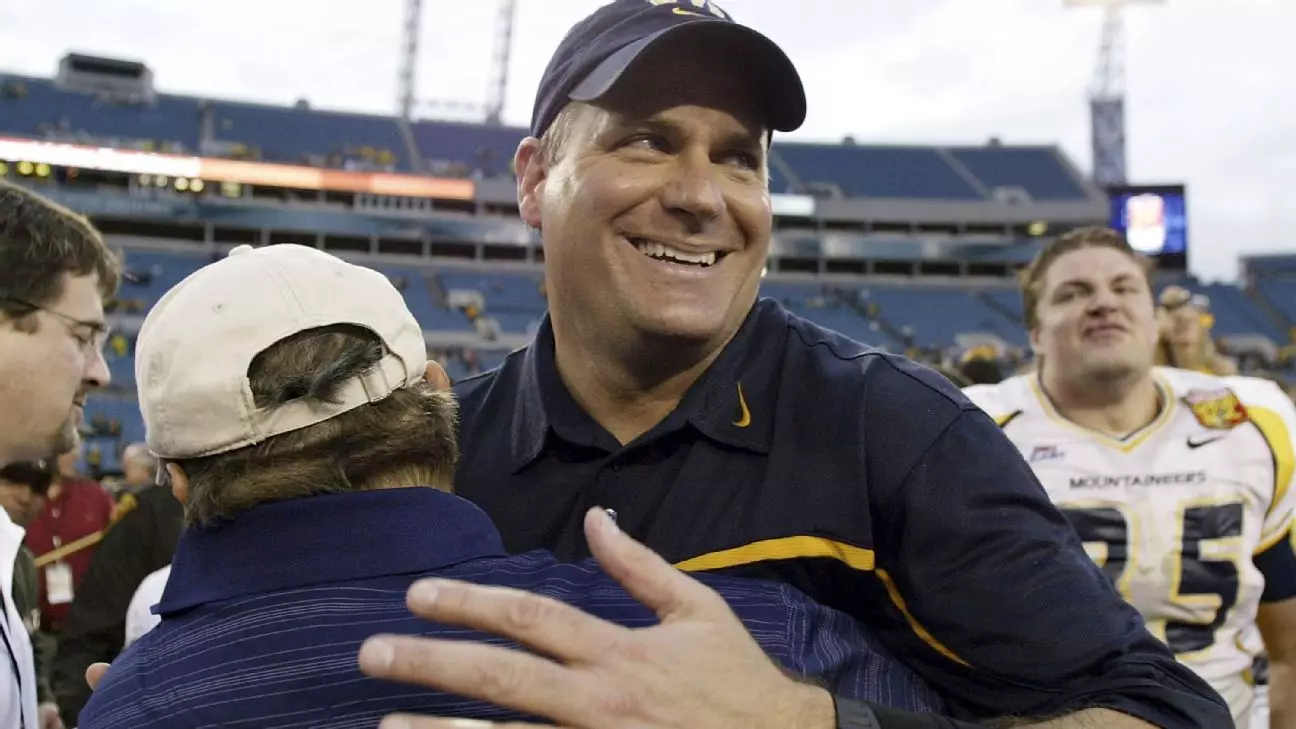Rich Rodriguez’s potential return to West Virginia University as head coach is stirring a whirlwind of excitement, nostalgia, and slightly tinged apprehension among fans and stakeholders alike. After an impressive tenure that spanned from 2001 to 2007, during which Rodriguez led the Mountaineers to three consecutive ten-win seasons and a Sugar Bowl triumph over Georgia, the prospect of his return feels not just historic but emotionally significant. Rodriguez’s departure from West Virginia was intensely controversial, marked by legal disputes and dissatisfaction on both sides. As Rodriguez approaches a deal to come back to his roots, one cannot underestimate the emotional weight this homecoming carries for both the coach and the program.
Rodriguez leaves his current post at Jacksonville State, where he has rekindled his coaching prowess with back-to-back 9-4 seasons and a Conference USA Championship. However, the West Virginia program that awaits him is vastly different from the one he once dominated in the Big East. The football landscape has shifted since Rodriguez’s departure, with West Virginia sliding into the Big 12 and struggling to reclaim its previous glory. The Mountaineers have only enjoyed one ten-win season since the switch and have not appeared in the AP rankings since 2018. Rodriguez must now navigate this challenging terrain, where the expectations are inherently high but the recent history has been plagued by mediocrity.
Moreover, the current culture of college athletics, heavily influenced by Name, Image, and Likeness (NIL) deals, places both opportunities and hurdles before Rodriguez. West Virginia faced challenges in building a competitive NIL program during his predecessor Neal Brown’s tenure, which curbed recruiting efforts and support from prospective athletes. Rodriguez’s arrival could revitalize donor enthusiasm and fan support, crucial elements that could enable the Mountaineers to regain their competitive edge.
For many fans, Rodriguez embodies a golden age of West Virginia football—an era defined by explosive offenses and dramatic victories. With Rodriguez back at the helm, there are expectations of renewed relevance on the national stage. The first significant game circled on the calendar is a long-anticipated showdown with rival Pittsburgh on September 13 in Morgantown, a match sure to draw widespread attention given the fierce historical rivalry. It’s not just a game; for many, it represents an opportunity to re-establish an identity that has become somewhat lost during recent years.
However, Rodriguez’s history post-West Virginia adds an element of uncertainty. Although he achieved varying degrees of success at Michigan and Arizona, his later coaching years were marked by inconsistency. His time at Michigan, characterized by a 15-22 record, culminated in a tarnished legacy that some West Virginia fans may fear could reemerge. Conversely, this uncertainty may fuel a sense of catharsis for both Rodriguez and the program; through confronting his past disappointments, he has a chance to forge a new, constructive narrative.
If Rodriguez’s new tenure unfolds as anticipated, it will not only impact the football program but also serve as a rallying point for alumni and supporters who have longed for a return to the team’s competitive roots. Rodriguez’s unique connection to West Virginia—the state that molded him—instills both hope and a sense of accountability. Fans yearn for a coach who is not only a tactician but also one who understands the emotional landscape of the region. Leading the Mountaineers back into the spotlight will no doubt be a hefty task, but it is also an opportunity for Rodriguez to reclaim his spot as a beloved figure in the storied history of West Virginia football.
As this narrative develops, it will be fascinating to observe how Rodriguez navigates the blend of nostalgia and scrutiny, old rivalries, and the evolving dynamics of college athletics. The ensuing seasons promise to offer captivating stories as the Mountaineers aim for resurgence, and the coaching chapter of Rich Rodriguez’s career may just be the catalyst needed for such a transformation.

